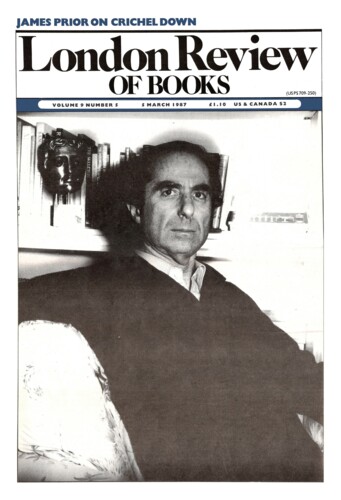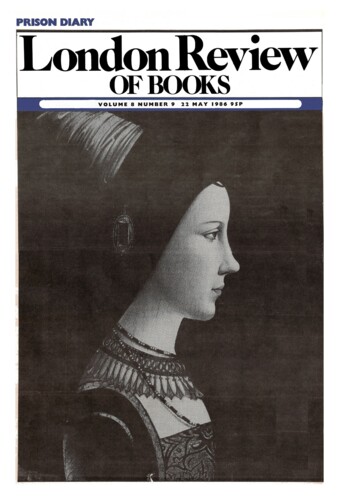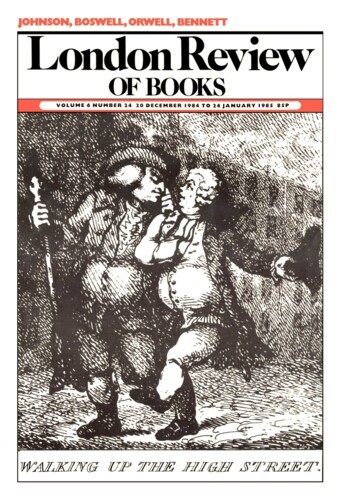Contra Galton
Michael Neve, 5 March 1987
This much-debated study of eugenics contains a love song to British science – indeed to British size – that has gone almost unnoticed as the Provost of King’s College, Cambridge, preparing for his departure from these shores, gives at least a plausible account of why the situation is now so bad in the arts and the sciences. In the Name of Eugenics arrives, in its Penguin version, groaning with American honours: done over by the Checking Department at the New Yorker, then Knopf’d, then winner of the ‘Page One Award for Science Writing in Magazines’ and, in 1985, runner-up for the American Book Award in Non-Fiction. It is an affluent work brewed in a culture of affluence, and some of this shows in its analyses of eugenical selection – who should breed, who not.’





